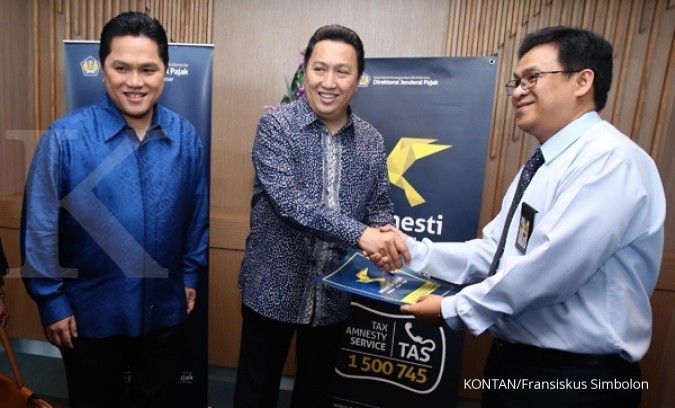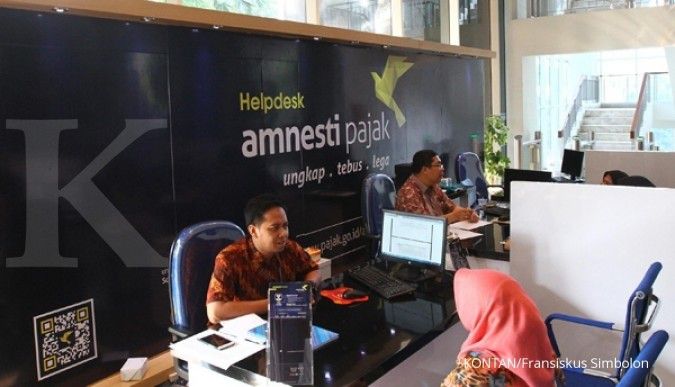JAKARTA. Indonesia may be proud, since the national’s tax amnesty program books new record as the most successful ever tax amnesty program in the world.
Indonesia even breaks Italy’s record in terms of the total amount of declared assets. Italy’s tax amnesty program succeeded to book IDR1,179 trillion of declared assets, while Indonesia’s tax amnesty program until Wednesday (28/9) night has booked 2,612 trillion of declared assets, with an IDR81.2 trillion of redemption fees.
However, the achievement is not necessarily an accomplishment of Indonesia’s mission for conducting the tax reform. In other words, Indonesia’s achievement in tax amnesty is actually a beginning for launching tax reform process.
According to General Chairman of Indonesian Employers’ Association (Apindo) Haryadi Sukamdani, to date tax only has a function as budget source. Whereas tax is actually has a significant function in stimulating national economy.
In this case, government needs to revise the Law on General Provision of Taxation, Law on Income Tax, and Law on Value Added Tax, as well as to improve tax’s judiciary system in order to improve national competitiveness. “It will be contra-productive if state is using taxation as an instrument of extortion”, Sukamdani said on Wednesday (28/9).
Some businessmen expect that government reduce the tax rate in order to encourage taxation to become a stimulant for national economy. “It is suggested that government cuts income tax rate, like Singapore that has competitive tax rate”, said the owner of PT Berca Indonesia Murdaya Widyawimarta Poo. She added that without reduction on the tax rate, the investors may continue to invest in overseas.
Executive Director of Center for Indonesia Tax Analysis Yustinus Prastowo said that government has important task to settle during the second phase of tax amnesty, namely increasing the amount of repatriated assets. To date, the repatriated assets amounted to IDR128 trillion or only 5.1% of declared assets. In other words, government has not yet succeeded to approach some of Indonesians to repatriate their overseas assets.
In order to attract the taxpayers to repatriate their overseas assets, government may offer investment incentives, as well as conduct tax reform by decreasing tax rate in order to increase national competitiveness. For an example, government may gradually cut the income tax rate from 25% to 22%. In this case, if the tax rate is cut directly to the level of 17% like in Singapore, government will be struggling to find new funding sources.
Expert Staff for State Income Policy Affairs at the Ministry of Finance Astera Primanto Bhakti said that government will conduct tax reform by revising the Law on Income Tax and Law on value added tax.
Director of Counseling, Service, and Public Relations Hestu Yoga Saksama expects that the Law on General Provision of Taxation may settle in this year. Meanwhile, the Law on income tax and value added tax will settle in 2017.
(Muhammad Farid/Translator)
/2016/09/20/793283677.jpg)











